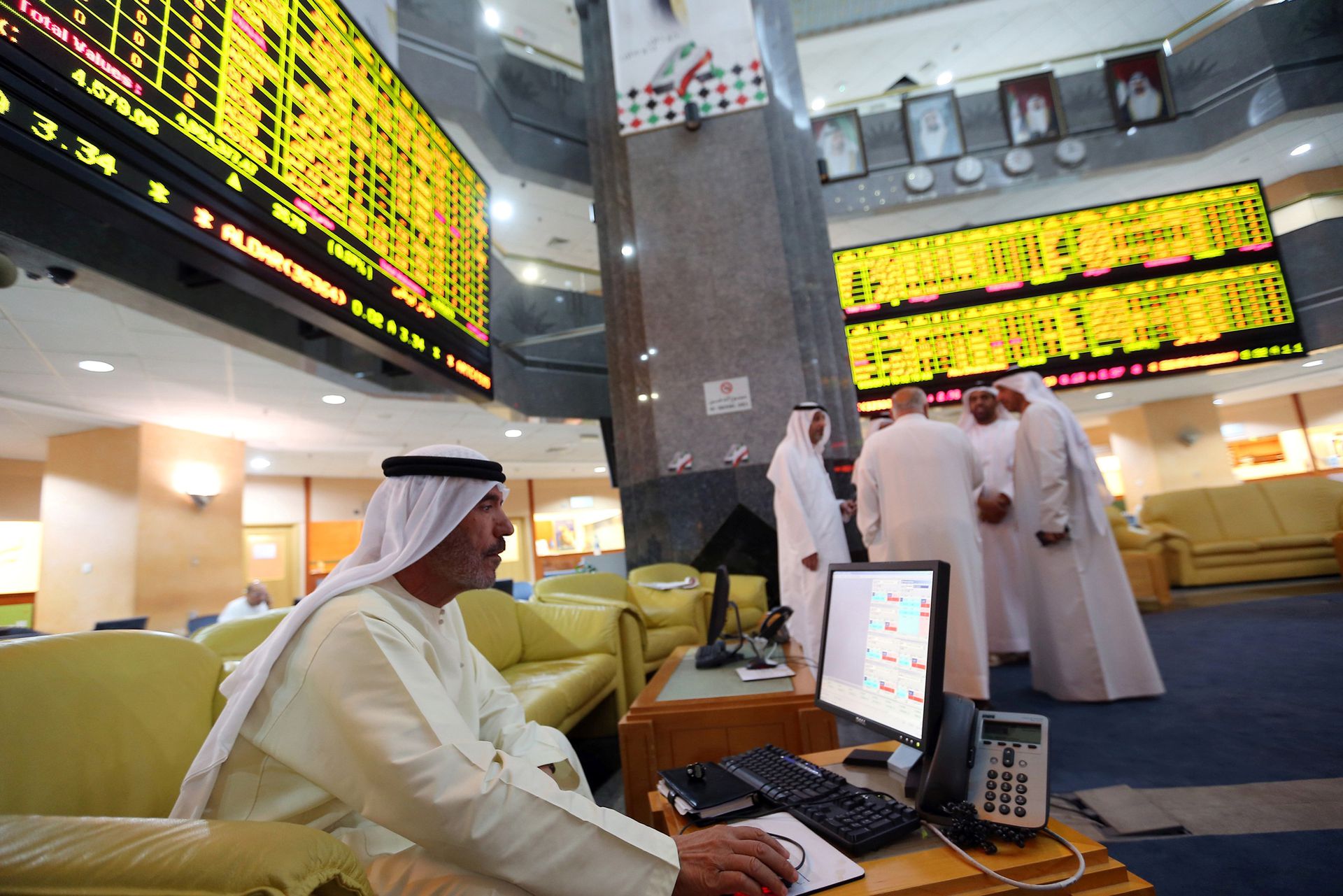Most Gulf stock markets closed lower on Tuesday, as falling oil prices and expectations of an interest rate hike by the U.S. Federal Reserve subdued investor sentiment, while Abu Dhabi bucked trend.
Oil prices - a key catalyst for the Gulf's financial markets - slipped by more than 1% on Tuesday with March Brent crude futures 1.25% lower at $83.97 a barrel by 1414 GMT.
Investors expect the Federal Reserve will raise rates by 25 basis points on Wednesday, and any deviation from that script would be a real shock.
Most Gulf currencies are pegged to the U.S. dollar, and Saudi Arabia, the United Arab Emirates and Qatar usually mirror U.S. monetary policy changes.
The benchmark index (.TASI) in Saudi Arabia lost 0.2%, extending losses into a second session. The index was weighed down by a 1.8% loss in Saudi Basic Industries (2010.SE) and a 0.2% fall in luxury real estate developer Retal Urban Development (4322.SE).
In Abu Dhabi, the index (.FTFADGI) rose 0.1%, helped by a 5.7% gain in Abu Dhabi Islamic Bank, which saw it highest intra-day rise since July.
Abu Dhabi's biggest Sharia-compliant lender reported a surge in quarterly net profit, supported by broad-based income momentum across all its operating businesses.
Dubai's benchmark index (.DFMGI) dropped marginally, weighed down by losses in financial and heavyweight real estate sectors with Dubai Islamic Bank (DISB.DU) declining 3% and Emaar Properties (EMAR.DU) falling 0.7%.
The Qatari Stock index (.QSI) dropped 1.7%, with most of its constituent stocks in negative territory.
"Milder winters are affecting the demand for energy in Europe and the US, and could fuel pressures on the Qatari market," said Farah Mourad, Senior Market Analyst of XTB MENA.










